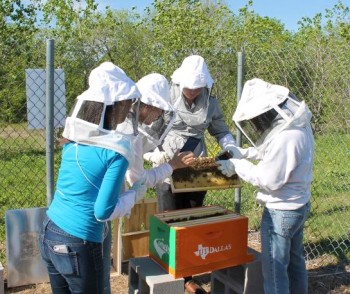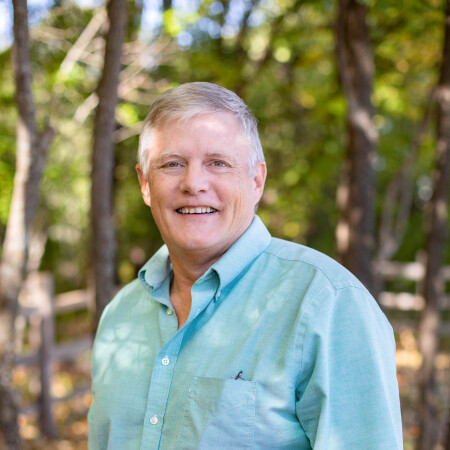Ph.D. - Molecular and Cell Biology
University of Texas at Dallas - 1999
Professional Preparation
M.S. - Molecular and Cellular Biology
University of Texas at Dallas - 1996
University of Texas at Dallas - 1996
B.A. - Biochemistry
Texas A&M University - 1988
Texas A&M University - 1988
Publications
Rippel, S., Nika, J., and Hannig, E.M. Enhanced Initiation at non-AUG Codons in Dsui2 (eIF2a) Yeast Strains is Suppressed by a Mutation in the G-domain of the eIF2g-subunit. (in preparation). ? - Publication
Rippel, S. and Hannig E.M. Isolation and Characterization of Sui- mutants of eIF-2. (in preparation) ? - Publication
Hoefnagels, M. and Rippel, S.A. Using Superstitions to Teach Experimental Design in Beginning and Advanced Biology Classes. In press American Biology Teacher, Spring 2002 2002 - Publication
Nika, J., Rippel, S., and Hannig, E.M. Biochemical Analysis of the eIF2 Complex Reveals a Structural Function for eIF2 in Catalyzed Nucleotide Exchange. The Journal of Biological Chemistry, Jan 12, 2001. 2001 - Publication
Erickson, F.L., Nika, J., Rippel, S., and Hannig, E.M. Minimum Requirements for the Function of Eukaryotic Translation Initiation Factor 2. Genetics, Feb 12, 2001. 2001 - Publication
Projects
Functional analysis of mutations in the g subunit of yeast eIF-2 that alter selection of the translational start site and Met-tRNA Binding
2018–2018 1998 Scott A. Rippel and Ernest M. Hannig. Functional analysis of mutations in the g subunit of yeast eIF-2 that alter selection of the translational start site and Met-tRNA Binding. Poster, Cold Spring Harbor Translational Control Meeting.Analysis of the N-terminal domain of yeast eIF-2
2018–2018 1998 Scott A Rippel and Ernest M. Hannig. Analysis of the N-terminal domain of yeast eIF-2. Oral Presentation, UTD Biology Graduate Student Symposium.Functional analysis of mutations in the g subunit of yeast eIF-2 that alter selection of the translational start site
2018–2018 1997 Scott A. Rippel and Ernest M. Hannig. Functional analysis of mutations in the g subunit of yeast eIF-2 that alter selection of the translational start site. Poster, San Francisco Translation and Stability of mRNA Symposium.Functional analysis of mutations in the g subunit of yeast eIF-2 that alter selection of the translational start site
2018–2018 1997 Scott A. Rippel and Ernest M. Hannig. Functional analysis of mutations in the g subunit of yeast eIF-2 that alter selection of the translational start site. Poster, Southwestern and Rocky Mountain Division, American Association for the Advancement of Science, Annual Meeting.Functional analysis of mutations in the g subunit of yeast eIF-2 that alter selection of the translational start site
2018–2018 1997 Scott A. Rippel and Ernest M. Hannig. Functional analysis of mutations in the g subunit of yeast eIF-2 that alter selection of the translational start site. Oral Presentation, UTD Biology Graduate Student Symposium.Additional Information
5 publications in related fields
Military Service
- 1993 Captain, Hospital Adjutant, United States Army
- 1990 First Lieutenant, Hospital Adjutant, United States Army
- 1989 Second Lieutenant , Medical Platoon Leader, United States Army
Teaching History Fall 1999 - current
Senior Lecturer (9-17 credit hours per semester)- Issues in Biotechnology Laboratory, BIOL2V00<\li>
- Introduction to Modern Biology 1, BIOL2311<\li>
- Introductory Biology Lab, BIOL2281<\li>
- Biochemistry Laboratory, BIOL3380<\li>
- Biology Readings, BIOL3V90<\li>
- Cell and Molecular Biology Laboratory, BIOL4380<\li>
News Articles
Honey Bee Biology Class Creates Buzz Around University
Dr. Scott Rippel MS'96, PhD'99 has a honey of a deal for students at The University of Texas at Dallas.This fall, the senior lecturer is teaching Honey Bee Biology, a survey course where biology undergraduates learn about the insect’s biology, behavior, social organization and role in the environment and agriculture. Students in his class get hands-on experience with basic beekeeping in the campus apiary, including maintaining the colonies and harvesting honey.
Rippel, a decorated U.S. Army veteran, had no formal experience as a beekeeper before teaching the course. He earned both his MS and PhD in molecular and cell biology from the Department of Biological Sciences in the School of Natural Sciences and Mathematics and has been teaching since 1999.
Honey Bee Biology Class Creates Buzz Around University
Dr. Scott Rippel MS'96, PhD'99 has a honey of a deal for students at The University of Texas at Dallas.This fall, the senior lecturer is teaching Honey Bee Biology, a survey course where biology undergraduates learn about the insect’s biology, behavior, social organization and role in the environment and agriculture. Students in his class get hands-on experience with basic beekeeping in the campus apiary, including maintaining the colonies and harvesting honey.
Rippel, a decorated U.S. Army veteran, had no formal experience as a beekeeper before teaching the course. He earned both his MS and PhD in molecular and cell biology from the Department of Biological Sciences in the School of Natural Sciences and Mathematics and has been teaching since 1999.
Princeton Review Recognizes UT Dallas for Sustainable Practices
 For the third consecutive year, UT Dallas has earned recognition as one of the most environmentally responsible colleges in the U.S. and Canada in The Princeton Review's Guide to 332 Green Colleges.
For the third consecutive year, UT Dallas has earned recognition as one of the most environmentally responsible colleges in the U.S. and Canada in The Princeton Review's Guide to 332 Green Colleges.UT Dallas, one of seven universities in Texas to make this year’s list, was commended for establishing an Office of Sustainability, which seeks to “mitigate UT Dallas’ footprint on the environment, to raise visibility and awareness of environmental issues on campus and our community, and to engage UT Dallas students, faculty and staff in developing sustainable policies and practices.” The office works with other departments on campus to organize environmentally focused events, such as this week’s Earth Week, and supports organizations such as the Community Garden and Green People, a new student organization.
Princeton Review Recognizes UT Dallas for Sustainable Practices
 For the third consecutive year, UT Dallas has earned recognition as one of the most environmentally responsible colleges in the U.S. and Canada in The Princeton Review's Guide to 332 Green Colleges.
For the third consecutive year, UT Dallas has earned recognition as one of the most environmentally responsible colleges in the U.S. and Canada in The Princeton Review's Guide to 332 Green Colleges.UT Dallas, one of seven universities in Texas to make this year’s list, was commended for establishing an Office of Sustainability, which seeks to “mitigate UT Dallas’ footprint on the environment, to raise visibility and awareness of environmental issues on campus and our community, and to engage UT Dallas students, faculty and staff in developing sustainable policies and practices.” The office works with other departments on campus to organize environmentally focused events, such as this week’s Earth Week, and supports organizations such as the Community Garden and Green People, a new student organization.
